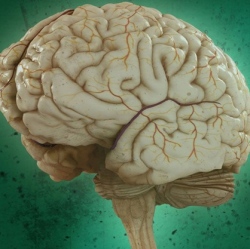
Neuroscientists have succeeded in creating ‘ghosts’ by tricking the brains of subjects into feeling an unexpected ‘presence’ in the room. Under normal circumstances the brain is able to form a unified self-perception, but researcher Olaf Blanke explained that when this malfunctions the brain creates a second representation of its body.
"Most of the research predicts that we cannot tickle ourselves because our brain precisely predicts of one hand, of my hand, touching my body or touching one or another position. However, if this is not fully integrated because I’m doing it or if I cannot correctly predict because somebody else were to touch me; in those cases of uncertainty, very often in those cases of double touch, the response is that you feel ticklish or tickled by somebody else," said Blanke who is leading the research at the Swiss Federal Institute of Technology in Lausanne, Switzerland (EPFL).
Blanke’s team began by analyzing the brains of 12 patients with neurological disorders who have reported having such a secondary representation of their body, in other words a ghost sensation. MRI scans revealed abnormalities with three brain regions involved in self-awareness, movement and the sense of position in space. These brain regions together contribute to multi sensory signal processing, important for the perception of one’s own body. The scientists then conducted an experiment to ‘trigger’ a similar neurological sensation in healthy subjects.
Blindfolded and wearing ear-plugs, test subjects performed movements with their hand attached to a robotic device. Behind them, the robotic device reproduced their movements and touched them on the back. When conducted in real time, the participant’s brain could adapt and recognize it as their own movement because of the synchronized movement. However, when the scientists introduced a temporal delay of just a few milliseconds, the distorting of temporal and spatial perception induced the ‘ghostly’ feeling.
